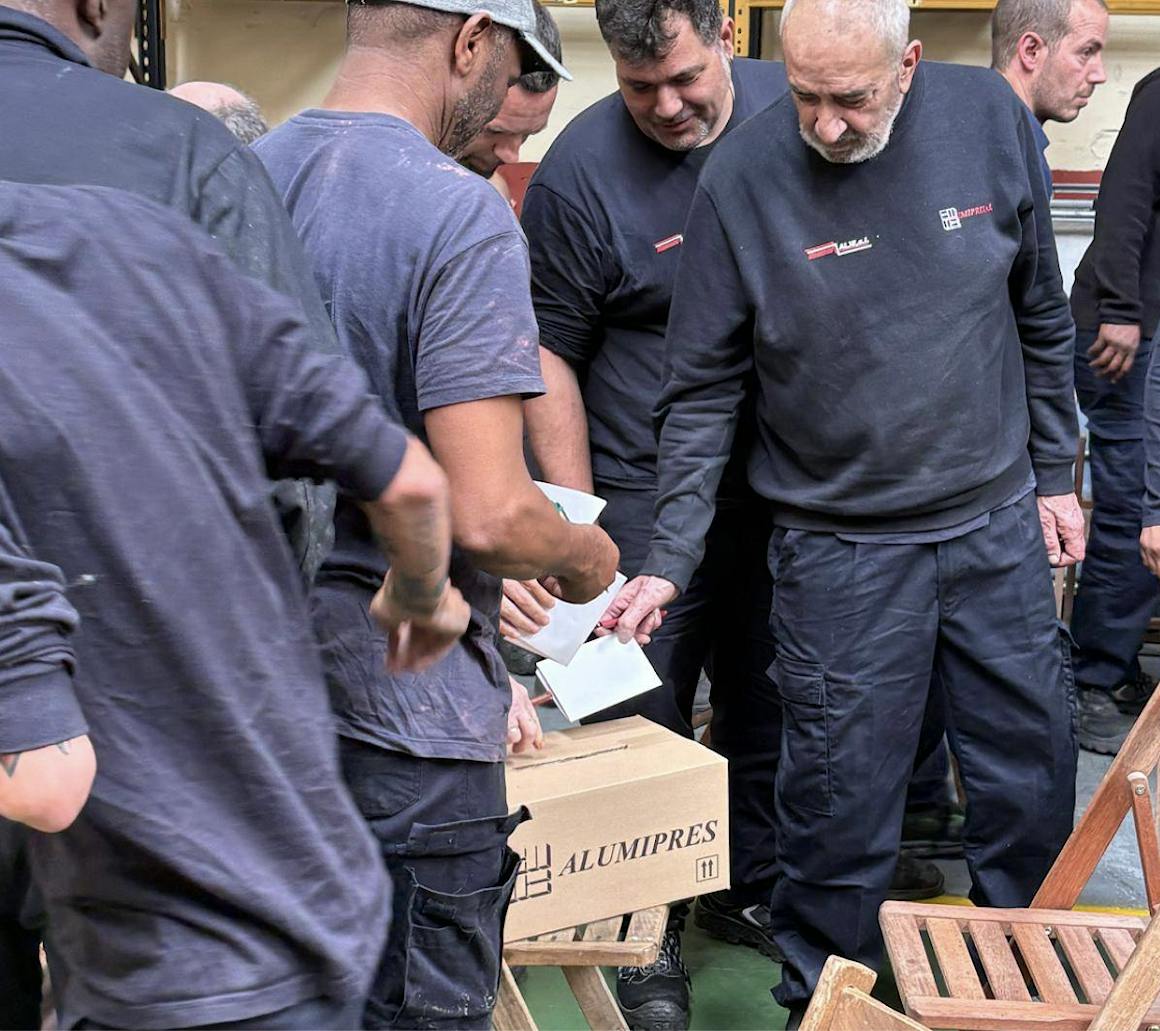Two Companies. Same Playbook. Completely Different Realities.

In southern Spain, inside a hangar, seven self-managing teams are running an aerospace supplier.
Decisions happen on the shop floor.Salaries are transparent.Profits are shared.
The atmosphere hums with quiet pride.
People who once waited months for permission now take responsibility every single day. Sales has grown by 50% in less than two years. Profit went up 65%.
On the other side of the country, not too far from Barcelona, another factory tells a different story.
The workshop air is thick, stifling in the summer heat.
Machines that seem to be older than their operators rattle and look like they might just break down mid-shift.
Dust lingers in corners no one bothered to clean.
Workers shake their heads, used to neglect.
“They treat us like the machines,” one said. “Run us until we break.”
Two factories. Two companies.
And both are acquired by Krisos, our buy-and-transform company that turns traditional businesses into self-managed ones. The mission is simple: prove work can be better for people, business, and society.
Yet even with the same playbook, walking through them feels like entering two different worlds.
Why?
Because one is two years into its transformation, and already reaping the benefits. The other has only just begun.
One shows what is possible when bureaucracy and traditional hierarchy are dismantled. The other reveals the grit and pain of a system still choking under it.
And this contrast is the point.
Transformation is not a neat before-and-after. It is a journey through stages, and these two factories show what that journey really looks like.
Indaero: A glimpse of what’s possible
Take Indaero, the aerospace supplier we acquired in July 2023. Back then, it looked like a textbook case of traditional management.
Forty people spread across five management layers.
Decisions crawling up and down the hierarchy.
Revenue flat at €2.3 million.
EBITDA limping at around €350k.
Fast forward to now.
The org chart? Gone. In its place: seven self-managing teams.
Profits? Up 65%. Sales? Up 50%. Salaries? Up 25% and now fully transparent.
Most importantly: over half the workforce now takes part in decision-making.
One former middle manager told us: “I always wanted to focus on engineering, not admin. Now I finally can.”
Another walked away entirely: “I’ve been the boss for two decades. I don’t know another way.”
Both choices were right. Because transformation does not mean everyone fits the new mold. It means everyone chooses their place in it.
Indaero today is not perfect. But it is proof: dismantling bureaucracy is not just an ideology. It is a route to stronger performance.
Alumipres: The messy beginning
Now look at Alumipres, just weeks into its transformation.
Here is what we have seen and heard so far:
- A neglected environment. Machines breaking down, little maintenance, and a workplace that mirrors the years of neglect people have felt.
- Skepticism and doubt. Some believe change will never happen. Others ask whether it is all too good to be true.
- First cracks of change. For the first time in years, people are speaking openly about problems that were long hidden.
If Indaero shows what is possible, Alumipres shows the rawness of the first steps.
The mess. The pain. The uncertainty of leaving the old system behind.

And yet this is where the real work begins. Before hierarchies can be flattened, salaries redesigned, or profits shared, trust must be rebuilt.
Two stages of a similar journey
Indaero and Alumipres are two sides of the same coin.
- Indaero proves what happens when bureaucracy is dismantled: faster decisions, stronger results, more dignity at work.
- Alumipres shows what the early days feel like: gritty, vulnerable, full of resistance.
One inspires. The other grounds us in reality.
Both matter. Because you cannot skip the hard parts. The shine of self-management is built on the dirt, dust, and tears of dismantling bureaucracy.
Transformation is not a straight line. It is not a quick win.
It is a journey through stages: from broken trust, to raw honesty, to real ownership, and finally to shared success.
And that is why we keep going.
Because when the old system leaves the building, something else walks in: speed, ownership, dignity.
It is messy. It is emotional. It is worth it.
If you want to dive deeper into the exact playbook we use to transform companies like these, we will teach it step by step in our upcoming Masterclass, starting September 23.



